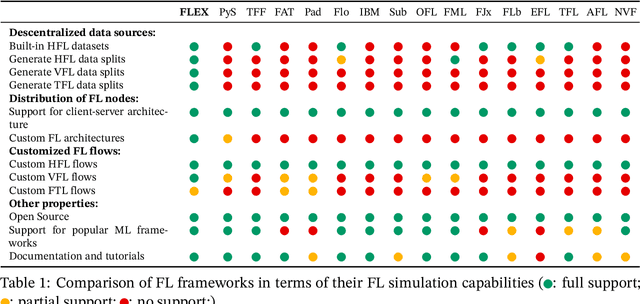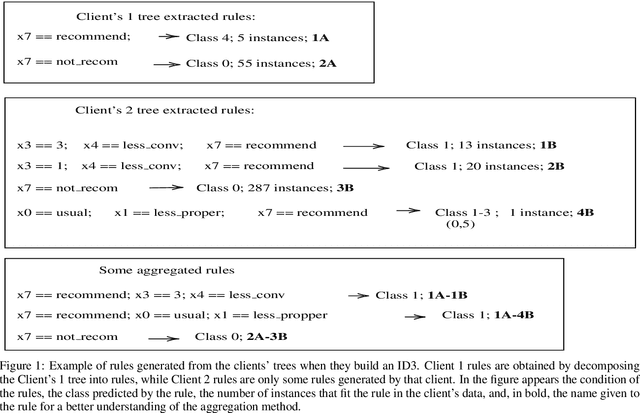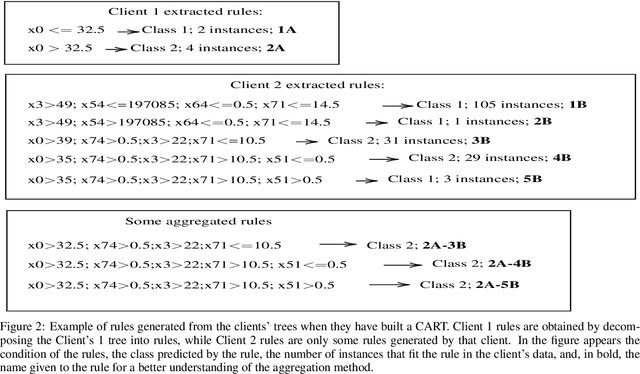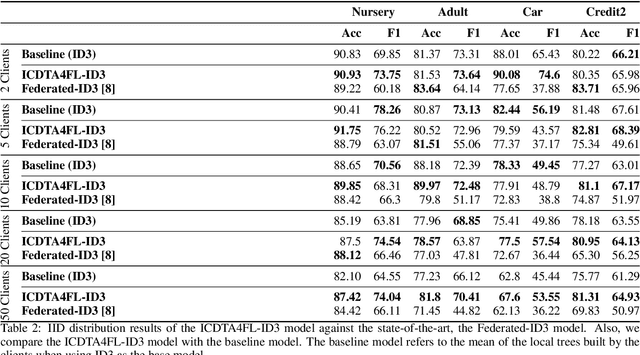Alberto Argente-Garrido
FLEX: FLEXible Federated Learning Framework
Apr 09, 2024



Abstract:In the realm of Artificial Intelligence (AI), the need for privacy and security in data processing has become paramount. As AI applications continue to expand, the collection and handling of sensitive data raise concerns about individual privacy protection. Federated Learning (FL) emerges as a promising solution to address these challenges by enabling decentralized model training on local devices, thus preserving data privacy. This paper introduces FLEX: a FLEXible Federated Learning Framework designed to provide maximum flexibility in FL research experiments. By offering customizable features for data distribution, privacy parameters, and communication strategies, FLEX empowers researchers to innovate and develop novel FL techniques. The framework also includes libraries for specific FL implementations including: (1) anomalies, (2) blockchain, (3) adversarial attacks and defences, (4) natural language processing and (5) decision trees, enhancing its versatility and applicability in various domains. Overall, FLEX represents a significant advancement in FL research, facilitating the development of robust and efficient FL applications.
An Interpretable Client Decision Tree Aggregation process for Federated Learning
Apr 03, 2024



Abstract:Trustworthy Artificial Intelligence solutions are essential in today's data-driven applications, prioritizing principles such as robustness, safety, transparency, explainability, and privacy among others. This has led to the emergence of Federated Learning as a solution for privacy and distributed machine learning. While decision trees, as self-explanatory models, are ideal for collaborative model training across multiple devices in resource-constrained environments such as federated learning environments for injecting interpretability in these models. Decision tree structure makes the aggregation in a federated learning environment not trivial. They require techniques that can merge their decision paths without introducing bias or overfitting while keeping the aggregated decision trees robust and generalizable. In this paper, we propose an Interpretable Client Decision Tree Aggregation process for Federated Learning scenarios that keeps the interpretability and the precision of the base decision trees used for the aggregation. This model is based on aggregating multiple decision paths of the decision trees and can be used on different decision tree types, such as ID3 and CART. We carry out the experiments within four datasets, and the analysis shows that the tree built with the model improves the local models, and outperforms the state-of-the-art.
 Add to Chrome
Add to Chrome Add to Firefox
Add to Firefox Add to Edge
Add to Edge